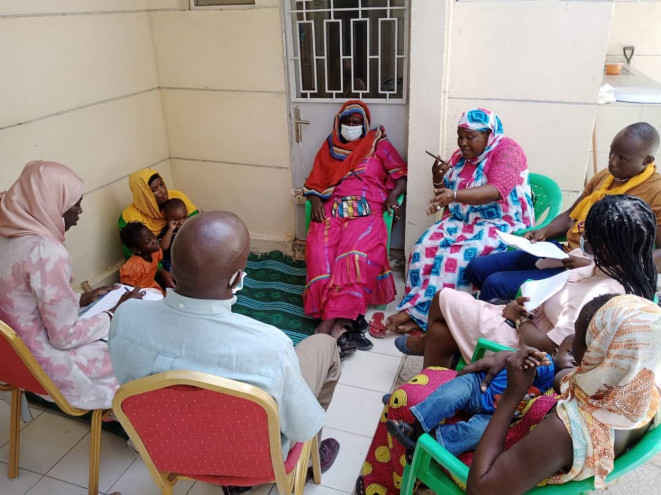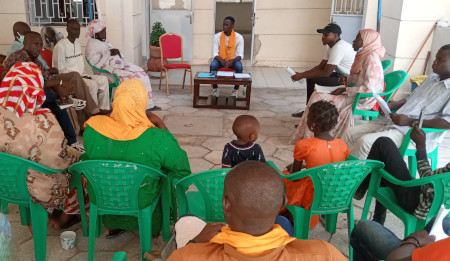Social Policy and Environmental Degradation in Senegal

By Jean-Michel Kantoussan, ATD Volunteer Corps member in Senegal
On World Day for Overcoming Poverty in 2021, some thirty people gathered at ATD Fourth World’s regional office in Dakar. Activists who live in poverty gave their perspective on the theme, “Building Forward Together, Ending Persistent Poverty, Respecting all People and our Planet”.
Impact of social policy on people living in deepest poverty
During the discussions, participants highlighted a problem. As one Fourth World activist said:
“What is the point of implementing social policy if people who are eligible don’t benefit from it?”
Although the government is trying to support the population, people living in poverty drew attention to a lack of information. The development of the health, education, housing, and work sectors remains a considerable challenge. In fact, public institutions do not always function well to preserve the dignity of each person.
Another activist said:
- “In many hospitals, we are not treated like we should be. We must speak out because some structures are making us even poorer. For example, this man took his wife to the hospital for her broken leg. Thanks to financial aid, his family was able to gather enough money for her care. However, once his wife was discharged, the hospital demanded an additional payment. But this man couldn’t afford it. So they confiscated his national identification card, which is required to find work, until he could pay back the entire amount.“
Neighbours help one another
Despite unstable situations, people who live in the deepest poverty are not giving up. One woman who is very active in her community explains how people support one another.
- “I have a small business and I always share my income with people who are in need. I know that this won’t make poverty magically disappear because I don’t earn much. But at least I try to do my part.
Here in Guinaw-Rails, I’ve helped many women find work. They all want to work, but without means, it’s complicated. Credit unions exist and might give them loans. But these women don’t dare apply because of the financial guarantees and the risk that their assets could be seized.”

Environmental problems cause more poverty, illness
Conversations made very clear how environmental degradation and poverty are connected. Living in extreme poverty forces families to live in unsanitary places.
- “Our environment is polluted and during the rainy season, the situation gets worse. Everyone becomes sick and then exhausted. We know what’s happening and we know we have to do something about it. We try our best to keep our houses clean. But we can’t prepare for floods if we don’t have money.
- If it was only rain, it would be much simpler. But the water that comes into our houses is often mixed with water from septic tanks. Then we get sick. Just by ourselves, we can’t do anything about it.”
These are worries that torment people in several neighbourhoods in the area.
More on ATD Fourth World in Senegal
ATD’s work on climate justice
ATD Fourth World Africa facebook page
Photos: World Day for Overcoming Poverty in Dakar, Senegal, 2021 © ATD Fourth World

